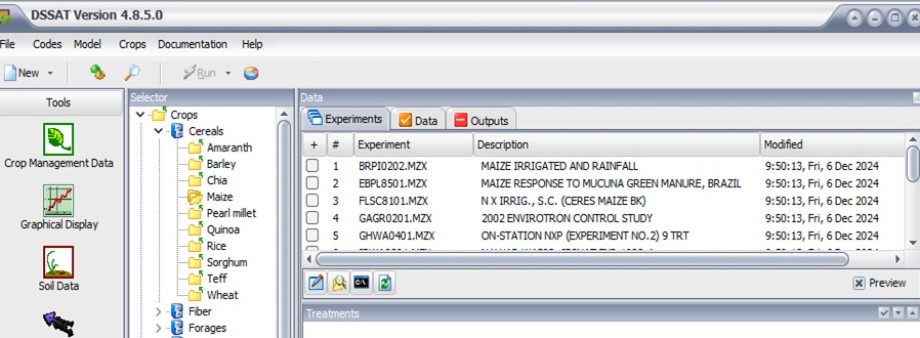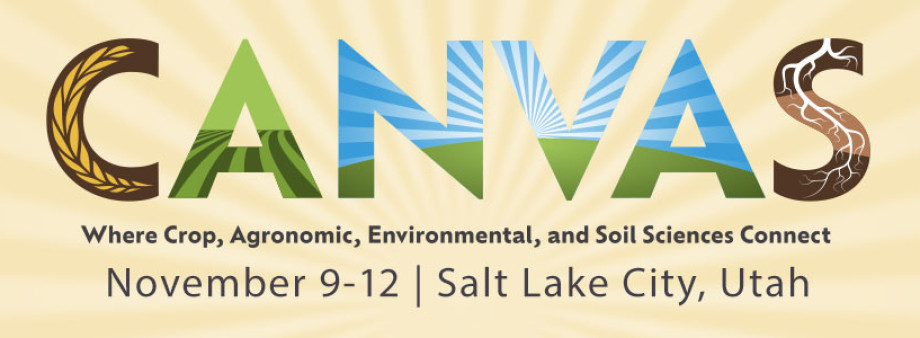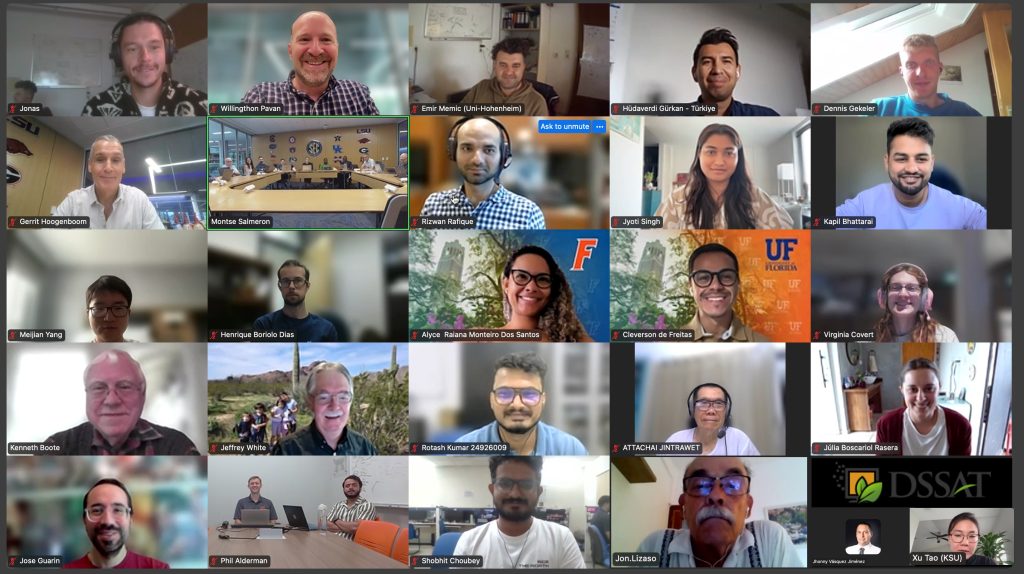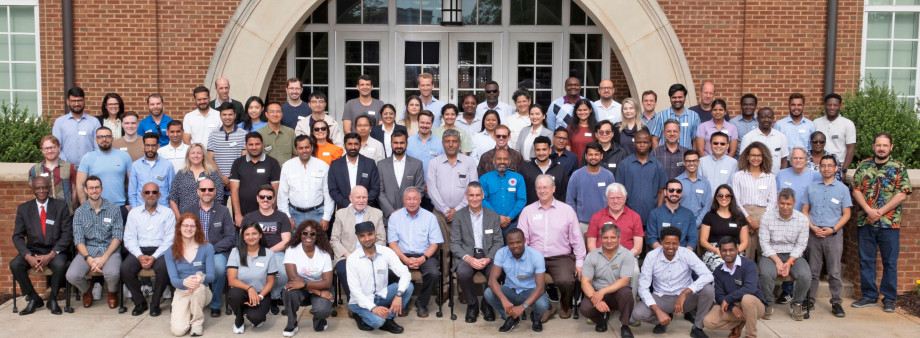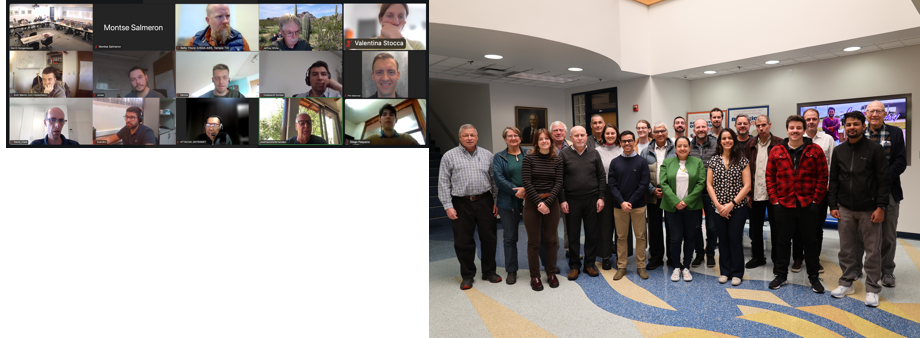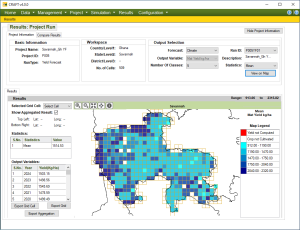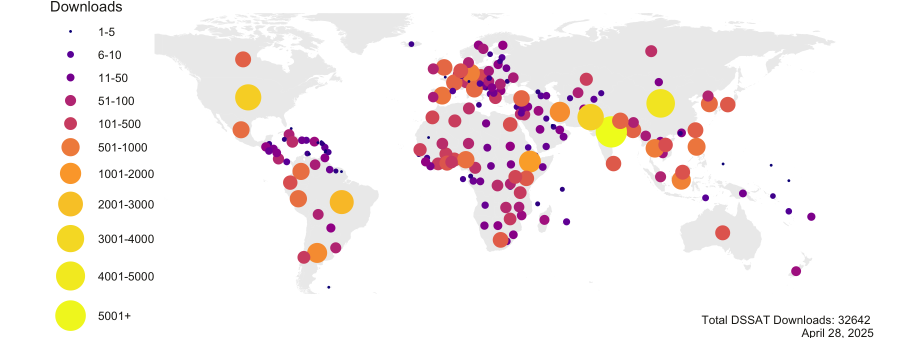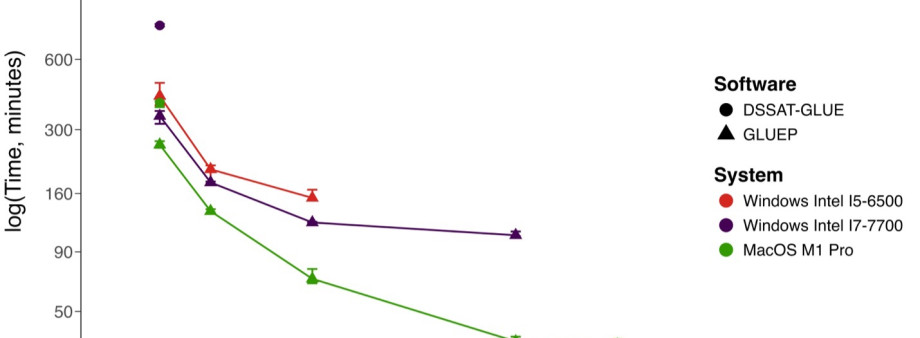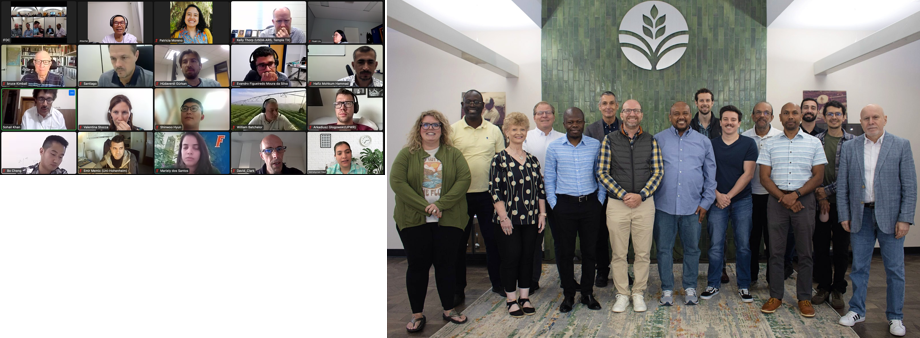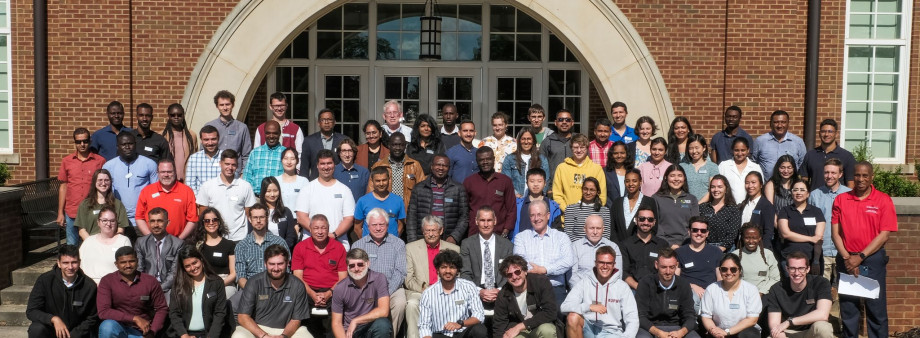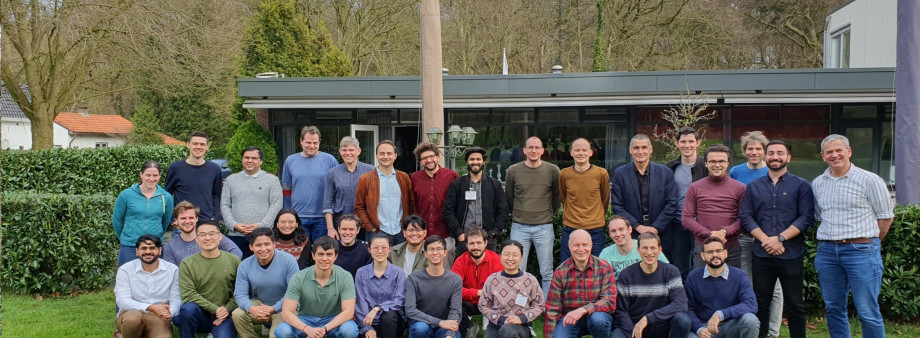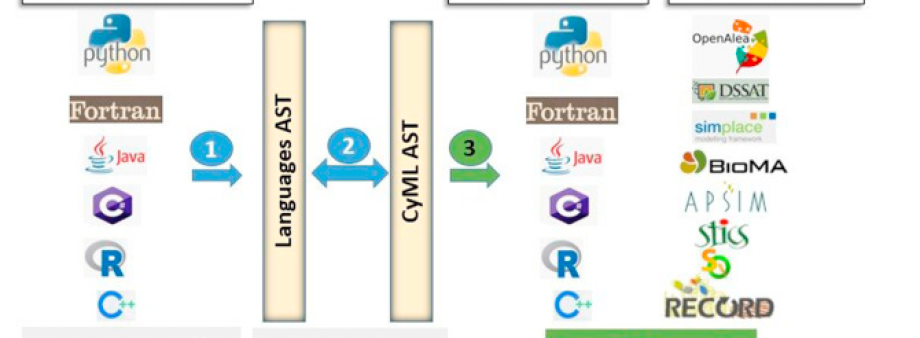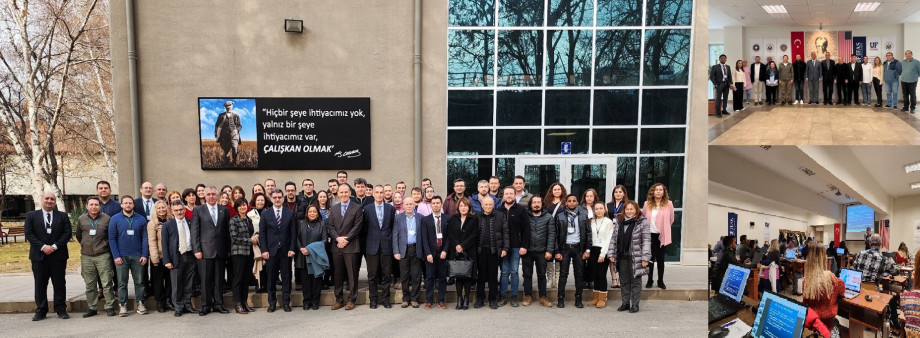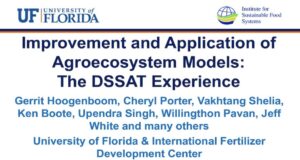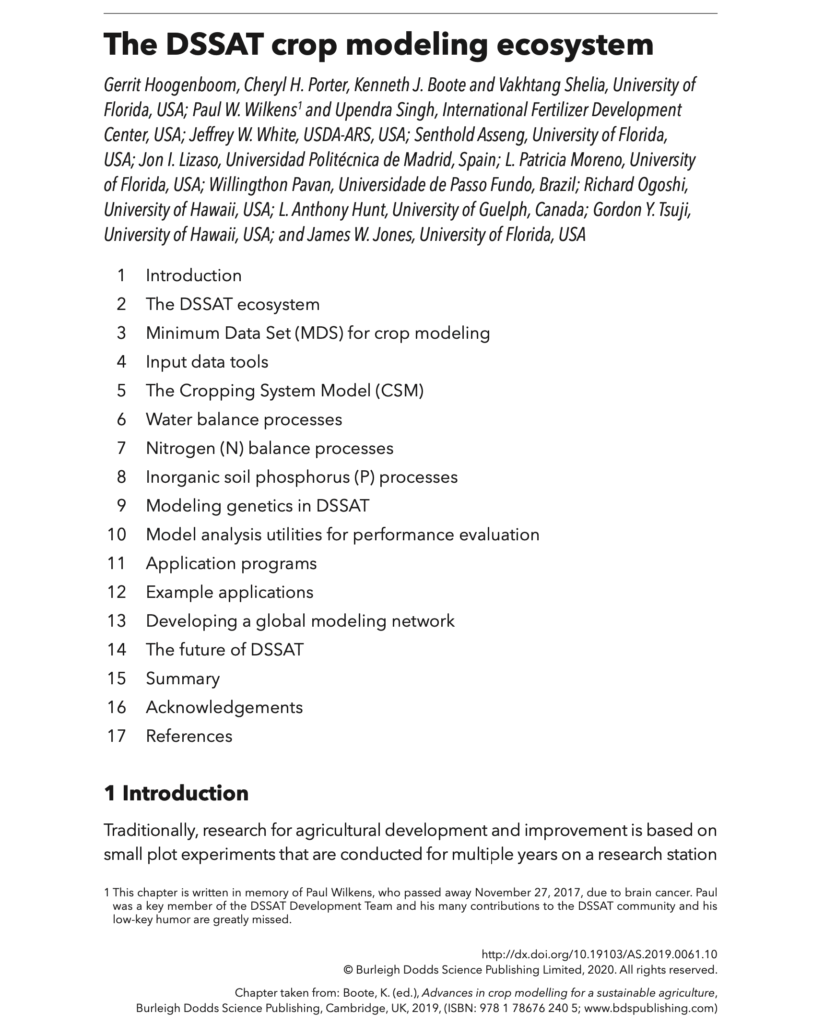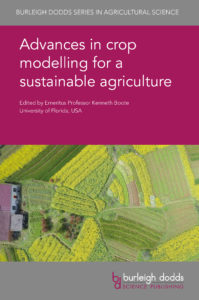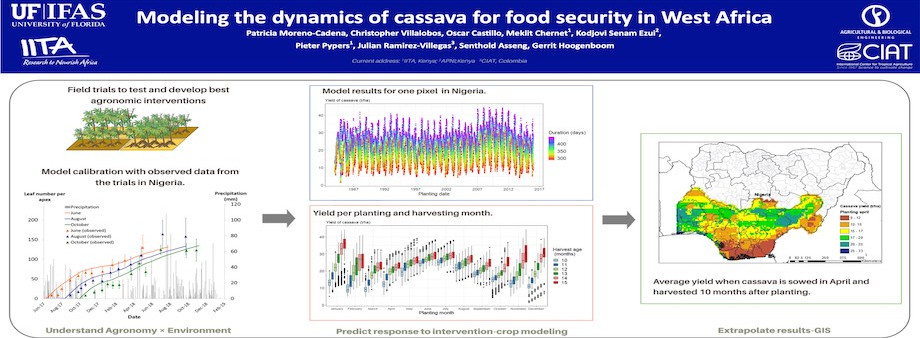Release of CRAFT Version 4.0
What’s new in the CRAFT Version 4.0? The latest version of CRAFT V4.0 adds fast and easy installation of the software and MySQL server, creating a database and populating it with all reference tables. CRAFT V4.0 uses MySQL Server 8.0, updated 64-bit Windows applications, MS .NET framework 4.8 libraries, and schema generation using R libraries. […]
DSSAT 2025 – Rural Development Administration Training Program on the Decision Support System for Agrotechnology Transfer
An introductory training program on DSSAT was held from February 24 through February 28, 2025 at the Rural Human Resource Development Center of the Rural Development Center in Jeonju-si, Jeollabuk-do, Republic of Korea. The workshop was attended by 39 participants, representing the National Institute of Horticultural and Herbal Science, Vegetable Research Division; Jeonbuk National University, […]
New Directions in Data Management
The DSSAT community has long emphasized the importance of relating model evaluations and applications to real world data. In recent years, we have welcomed interest in making datasets openly accessible and compliant with the FAIR principles whereby data are Findable, Accessible, Interoperable and Reusable (https://www.go-fair.org/fair-principles/). To this end, we have new initiatives to strengthen the […]
22nd Hybrid DSSAT Development Sprint at the University of Florida
The 22nd DSSAT Development Sprint, held from January 6–10, 2025, at the University of Florida, was a vibrant hub for agricultural modeling innovation. Hosted by the Global Food Systems Institute and the Department of Agricultural and Biological Engineering, this hybrid event gathered an international array of researchers, developers, and industry experts in Gainesville, Florida, and […]
Introducing the new DSSAT Version 4.8.5
The DSSAT model development team has been working hard to enhance the Cropping System Model (CSM) and the DSSAT suite of tools, utilities, and applications. After a year of remarkable progress and bi-annual Development Sprints, we are thrilled to announce the latest advancements. Major Updates in DSSAT Version 4.8.5: The December 2024 release introduces new tools, […]
Advancing Crop Modeling: Insights from the 27th Annual Open Forum on Crop Modeling and Decision Support Systems
On November 11th, a diverse group of experts convened to discuss the latest advancements and challenges in crop modeling. The meeting brought together researchers, engineers, and agricultural scientists from around the globe to share insights on improving crop models to address emerging agricultural needs. Key Topics and Discussions 1. Expanding Crop Models for Emerging Needs […]
International DSSAT Workshop at Pir Mehr Ali Shah Arid Agriculture University Rawalpindi, Pakistan
From December 16 – 18, 2024 the Department of Agronomy, Pir Mehr Ali Shah Arid Agriculture University Rawalpindi, Pakistan organized a three-day workshop entitled “International workshop on DSSAT: Assessing Climate Change Impact, Adaptation and Mitigation using Crop Simulation Models.” Speakers and presenters included Prof. Dr. Ir. Gerrit Hoogenboom, University of Florida; Prof. Dr. Shakeel Ahmad, […]

